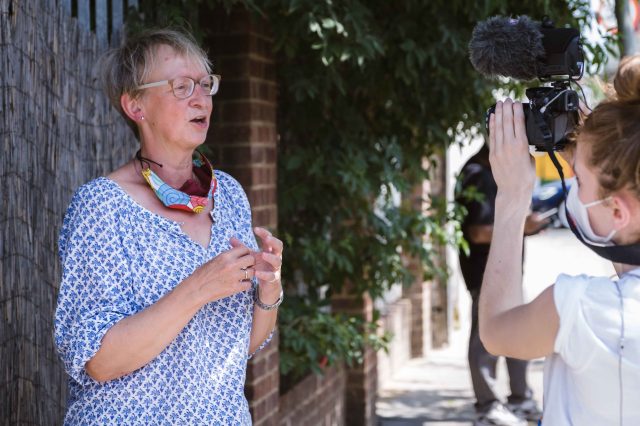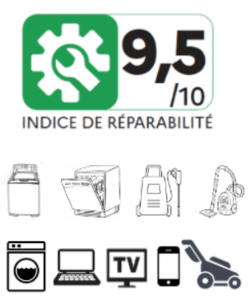
Originally published at: How we can push for Right to Repair in the UK in 2024 - The Restart Project
The last few years have been really exciting for the Right to Repair in many countries outside the UK. Around the world we’ve seen people get access to more repairable and longer lasting products, cheaper repair options and better information about product repairability. As a result, repair is helping tackle climate change, reduce waste, lower living costs, support communities and create green skilled jobs in more places than ever.
Now in the UK, we have the opportunity to put repair back on the agenda too!
Right to Repair is becoming a reality
Across Europe and North America, a number of countries have introduced measures to make repair more accessible. Here are just a few examples…
Austria
In Austria, the government offers a bonus that covers up to 50% of the cost of repairs for household electrical and electronic products. Any Austrian resident can have their broken phone, coffee machine, TV (and so on) fixed at any participating repair shop and get half the cost reimbursed, up to €200.
Taking part in the repair bonus programme supports the domestic repair industry, and is good for the environment and your wallet.
– Austrian Ministry for Climate Action, Environment, Energy, Mobility, Innovation and Technology (BMK) [source]
The scheme has proved so popular that the government increased the total funding available. Nearly a million vouchers have been issued so far, saving people more than €70 million in repair costs. Repair businesses have also benefitted, with some even seeing their sales double. And of course, each extra repair helps reduce waste and slow demand for new, carbon-intensive products.
France
Similar repair vouchers were also introduced in France last year as part of an anti-waste and circular economy law from 2020. But this law went even further, prohibiting certain anti-repair practices, requiring spare parts for a range of products be made available for longer and—perhaps most notably—creating a repair index.
The landmark repair index gives a wide range of products a score based on how easy they are to fix and is displayed at the point of sale, encouraging people to consider repairability when choosing what to buy. Early evidence suggests that the index has shifted consumer behaviour; people tend to choose more repairable products, which has led to manufacturers offering more repair. There are now plans in Belgium and the EU as a whole for similar repair indexes.

USA
Right to Repair measures are also becoming reality in the USA. A handful of states have already passed laws that generally require manufacturers to allow owners and independent repair professionals access to the same repair information, parts, and tools made available to the manufacturers’ own dealers and authorized repair facilities. Many others are currently considering similar measures.
Each state has a slightly different approach. But momentum is building and more and more people are getting better access to a wider range of repair options across the country.
Can the UK catch up?
Back in the UK, there’s been little progress.
We don’t have nothing; in 2021, the government introduced some pre-Brexit EU repair regulation. However these rules are limited and repair simply hasn’t been a priority since. Until now..?
The UK government recently proposed some changes to how waste electronic and electrical equipment (WEEE) is regulated. As part of the process, the Department for Environment, Food and Rural Affairs (DEFRA) have opened up a consultation and a call for evidence to help shape and refine the proposal. While most of the proposed changes in the consultation focus on boosting recycling—an often inefficient solution—the call for evidence is a rare chance to make the case for reducing waste through repair and reuse directly to policymakers themselves. Keep reading to learn how you can take part!
We are also working with a member of the House of Lords on a Right to Repair amendment to the Digital Markets Bill. We’ll soon learn whether that leads anywhere, but just having an amendment reach parliament is a huge step in the right direction.
Three things you can do
1. Support the UK Repair and Reuse Declaration
Last October, we launched the UK Repair and Reuse Declaration – a call for UK policymakers to unlock the huge potential of repair and reuse. Over 250 repair cafes, businesses and other institutions have signed up, as well as MPs from parties across the spectrum.
We’re aiming to get 100 MPs to sign up before the summer. So if yours hasn’t signed yet, please ask your MP to sign using our super simple tool. It only takes a minute!
If you run a repair group, MPs love what you do! So, please use this template letter to tell them about your group, and invite them along to your next event (while asking them to sign the declaration).

A group of community members having signed the Repair & Reuse Declaration. Photo by The Restart Project
2. Tell the government why repair and reuse matters to you [WEEE Reform]
Make the most of this rare chance to make your voice heard: submit evidence to the government’s e-waste consultation yourself or on behalf of your community group, organisation or business.
To make it easier, we’ve identified the relevant questions and written template answers for you to adapt in your own submission. The deadline is the 7th of March 2024.
Find instructions and our template answers you can adapt here.
3. Plan for International Repair Day 2024
Repair Day is back! This year it falls on the 19th of October, but it’s never too early to start planning. How will you celebrate the day? Can you invite your MP or get local media coverage? We’re working on some exciting plans too, which we will share soon.
Featured image: Mark A Phillips